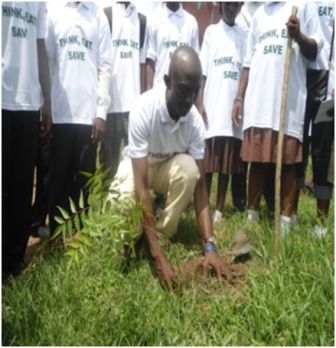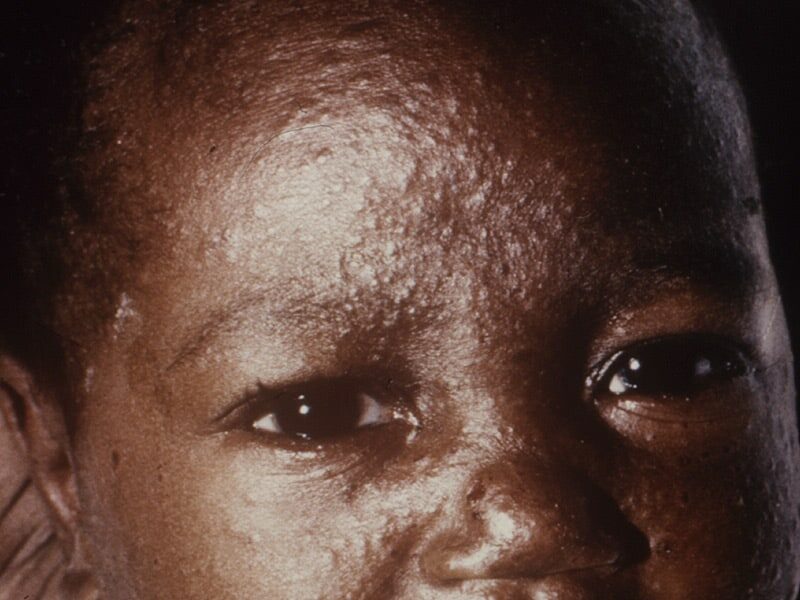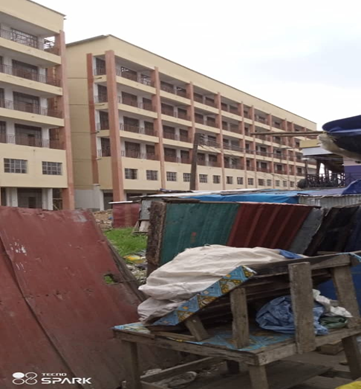Garbage and Malaria, two bedfellows? The issue of Waste Management in Sierra Leone
“If proper measures are not taken, the Sierra Leonean population would dwindle”. “Hah! Is this some kind of joke or what? What makes you say such a thing”?
As I listen to the dialogue between two adult men playing “draf” [a local board game] under a mango tree in Kissy Dockyard, east of Freetown, my thoughts drifted to an article I read from the Malaria Journal about a month ago as I stared into the heap of garbage just next by. The article states that malaria is one of the leading causes of mortality and morbidity among children in Sub-Saharan Africa causing nearly 800,000 deaths per year, most of which are children under five years of age. Sierra Leone has one of the highest under-five mortality rates in the world, and at every 1000 live births, 269 newborns die.
I wonder whether the statement of that man could be true. If 269 of every 1,000 child die, what happens if malaria is not controlled or stopped? In my desire to find answers, I spoke to Dr. Francis Smart, Population and Reproductive Health Practitioner at the Princess Christian Maternity PCM Hospital in Freetown. He said ”Malaria is hyper-endemic and one of the main killers in children under five years of age in the country and this situation has led to serious health concerns”. A person may wonder why there is high prevalence of malaria in the country. Can the reasons for this deadly situation be connected to the heap of garbage I am staring at? Let us see if we could find some understanding that would lead to precautionary actions. Let us go down garbage memory lane and see what went wrong.
Down Memory Lane
Management of waste in Freetown has posed costly and annoying problems for authorities over the past years. From corrupt officials to low service coverage, highly inadequate equipment, inefficiencies such as low quality service, low labour productivity, poor public attitudes and widespread illegal dumping, the management of this problem has been challenging and unsuccessful. According to a study by Dave Sood, a World Bank consultant on behalf of the Sierra Leone government in 2004, it was estimated that over 745 tons of garbage is generated in the Freetown municipality a day. This situation has made waste management to be under variable organizations both public and private and this goes back to the 1960s.
As a result of the civil war, Freetown became congested as thousands of rural residents migrated to the city which served as safe haven then. The result of this has been squalor, poor housing, inadequate sanitation, congestion, pollution and poor public services. The city suffered from a corresponding increase in the rate of generated waste which has very little management facilities. Piles of garbage can be seen everywhere in Freetown as most of the drains are clogged with garbage. Various streams of waste are generated and these are categorized as residential, institutional, industrial, commercial, and agriculture. These wastes have not been managed properly, and thereby pose many environmental and human health risks for all Sierra Leoneans. Garbage block storm drains creating breeding sites for malaria. This could be a primary cause for the rapid increase of the disease and its effect on the lives of the children.
Successful waste management depends on an efficient operational system. This however, has not been the case with the Sierra Leone waste management system. The system has suffered from mismanagement and corrupt practices in the past leading to massive failures in the management of waste in the country. We saw how in 1996, the Freetown City Council purchased a street sweeper for about 500 million Leones, a machine that did not even last for six months after it was purchased. And after series of complaints by the people and a call for the intervention by the central government, a refund of 3.2 million pound sterling was made to the council for the machine. You may wonder what happened to that refund. Well according to a report on MSP News on March 27th 2006, the Mayor and his councilors exchanged heated arguments concerning the use of the money during their 18th general meeting. The report stated that out of thirty-three councilors, sixteen voted that the funds be used to settle their terminal benefits while seventeen voted against.
This has been situation of the waste management system in Freetown for a long period of time. This is even the situation with the current authority; the Freetown Waste Management Company (FWMC) is struggling to manage the wastes under tight budget, limited trained but inexperienced manpower and little or no legislative authority and experience in waste management. The General Manager of the Company, Sulaiman Zainu Parker, said the issues affecting the operations of the company range from inadequate and malfunctioning equipment, inefficient collection practices, poor hygienic operating practices, indiscriminate illegal dumping and littering to a public with seemingly little sensitivity to the garbage around them.
Support from without
This operational roadblock faced by authorities has led international agencies and organizations to lend a supportive hand. Various agencies and organizations including The Kreditanstalt fur Wiederaufbau KFW Germany, The World Bank, the British government, Engineers without Borders Stockholm to name a few have supported in various ways ranging from the provision of machinery and technical support to training of personnel. In June 2007, DFID gave the sum of one hundred thousand pound sterling to the Freetown City Council FCC for the construction of the Kingtom dumpsite to improve environmental sanitation and reduce child mortality caused by malaria.
In addition to these, Silvia Garcia, a researcher and a team of 12 professionals working in the waste management sector in the UK visited Freetown in April 2009, to review the waste management problem that the country is facing. During the course of their stay, they held meetings with various stakeholders, delivering training in relevant waste management approaches and set up environmental clubs in selected schools in the city. ”We are therefore very keen to continue our project, in order to work towards a sustainable transformation of waste management in Freetown” said Silvia. Her direct experience with the situation has further motivated her to want to do more to help save the people of Sierra Leone.
Actions from within
External support can come in handy but how well it is utilized must also be considered. There is a local proverb in Krio [one of Sierra Leone’s local tribe] that says ”when water is poured on you to help you bath, you must do the scrubbing”. How well then has the authorities utilized the support given by international agencies? If in the best interest, there should then be no garbage littering the streets of Freetown. A successful waste management depends on an efficient operational system. Yet, even with all the help and support, the problem remains. What then has the government done in ensuring that this problem is addressed?
After several failed attempts to address the waste management in the past, the government contacted the Sierra Leone Policy Watch Forum to undertake a study and come up with recommendations for solid waste management in the country. The recommendations were compiled by Mohamed Boye Jallo Jamboria, Research and Development Director for ScanAfrik Consultancy. The consultant recommended among other things that the government must have a new and nationally oriented policy for waste management that will ensure an improvement in environmental sanitation which will compliment other areas of health services provision. Furthermore, government should embark on a mass public education drive to sensitize the people on personal health and environmental consequences of poor waste management.
To work with the recommendations put forward by Mr. Jamboria, the government is now giving a Le.280 million monthly subsidy to the company which is about 70% of the operational cost to foster effective waste management in Freetown. Yet in the area of regulations, Mr. Parker lamented that the laws are still weak, they do not have any support from the police and that people are still indiscriminately throwing garbage in the streets. All is not lost though; there have also been some individual contribution to the problem. Abass Mansaray is one of the few Sierra Leoneans who have taken upon themselves to contribute by undertaking house-to-house garbage collection on a daily basis for a minimum fee of two thousand per 50kg. And if there be a structured collaboration from other companies, individuals and the police, there could be some positive signs to the end of the problem.
In terms of health support to combat malaria, the government through the Ministry of Health has put forward a five year plan to improve sanitation in the country through public education. The goal of this plan is to gradually eradicate the deplorable and unhealthy sanitation conditions in the country. Furthermore, the Ministry of Health in its roll-back malaria campaign is working in collaboration with UNICEF and WHO to provide malaria treatment and mosquito treated nets for pregnant women and mothers across the country.
But when all is said and done, the people need to be more responsible for their actions. And unless there are strict enforced regulations, the situation would only be a vicious cycle consisting of uncollected garbage serving as breeding sites for mosquitoes and malaria and loss of children. And if measures are not put in place to correct this situation, then I would go back to agree with that man who says Sierra Leone’s population would dwindle as malaria continues to claim the lives of under fives and newborns.
Alinah O. Bockarie, China
Stay with Sierra Express Media, for your trusted place in news!
© 2012, https:. All rights reserved.





